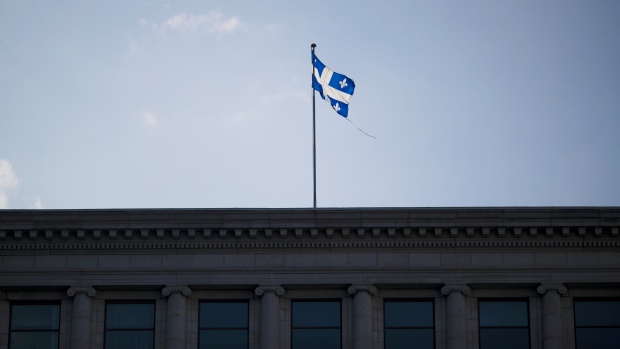Sep 24, 2018
'It will not look good’: Quebec’s legal pot age at play in election

Hundreds of thousands of Quebec residents might be about to lose access to cannabis before recreational legalization takes effect next month, but the pot sector doesn’t seem to mind.
If the Coalition Avenir Québec (CAQ) wins the Oct. 1 provincial election, the party has pledged to raise the minimum age of recreational cannabis consumption to 21 from 18 under existing law. More than 270,000 Quebec residents are 18, 19 or 20 years old, according to Statistics Canada, but at least one industry leader is not concerned about all those potential lost customers.
“Should that policy be introduced and enacted, we don’t see it as incredibly problematic for the industry,” Allan Rewak, executive director of the Cannabis Council of Canada, told BNN Bloomberg via telephone. “None of the members I have been speaking with are really gung ho about marketing to 19-year-olds anyways.”
The goal of backing a higher age for cannabis consumption is not to “demonize” marijuana, Ian Lafrenière, CAQ candidate for the Montreal-area riding of Vachon and a former Montreal police officer, told BNN Bloomberg in a telephone interview.
“I don’t want to say [cannabis] is worse than alcohol,” Lafrenière added, noting the CAQ has no plans to raise the minimum age of alcohol consumption in Quebec above 18. “The decision we took is not a popular decision, it will not look good, but it is a responsible decision.”
- Shoppers Drug Mart gets medical pot license from Health Canada
- Legal cannabis sales could top $1B in Canada’s opening quarter: StatsCan
- The road from Ziplocs to collectible tins: How pot firms designed their products
READ MORE: CANNABIS CANADA
Ken Lester argues the CAQ policy is anything but responsible.
“CAQ is pretending to be the moralistic right,” the McGill University finance professor told BNN Bloomberg via telephone. “But do you really think raising the age is going to stop 18 and 19 and 20-year-olds from getting high? All you’re doing is pushing them toward the biker gangs.”
Stamping out the illicit market for cannabis was among the key arguments Ottawa made to justify setting the federal minimum age for cannabis consumption at 18, despite recommendations from groups such as the Canadian Medical Association to establish a 21-year-old minimum age. Lafrenière, however, rejects that argument.
“I don’t buy the fact that organized crime will shut down because we took out marijuana, as an ex-police officer I simply do not believe that,” Lafrenière said. “It is organized crime, they are organized, they are already ahead of us and will move on to something else.”
Given the blatant disparity between the CAQ’s respective policies on alcohol and cannabis consumption, Lafrenière did leave the door open to softening the party’s hardline stance in the future.
“We are doing this because [legal recreational cannabis] is new,” he said. “We want to slow down, reduce the impact so we can see how it goes.”
In the meantime, Lester warns the reality of the CAQ policy will be the opposite of its stated goal of reducing cannabis use among youth.
“I teach behavioural finance and I can tell you that we seek out what we wanted but could not get as a child for the rest of our lives,” he said. “It is just like families that don’t let their children watch TV. Then they go to their friends’ house and they cannot get enough. It will be the exact same thing with cannabis.”
Cannabis Canada is BNN Bloomberg’s in-depth series exploring the stunning formation of the entirely new – and controversial – Canadian recreational marijuana industry. Read more from the special series here and subscribe to our Cannabis Canada newsletter to have the latest marijuana news delivered directly to your inbox every day.









